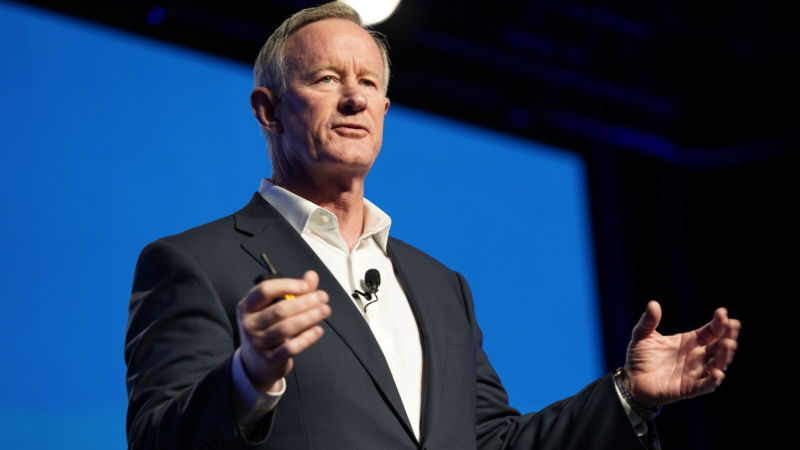
Retired Adm. William McRaven has had an extensive career in the U.S. military in which he had to overcome adversity at different moments, learning countless life lessons in teamwork, personal accountability, resilience, and leadership with purpose.
He shared those life lessons with attendees at ServiceNow’s Federal Forum – powered by MeriTalk – in National Harbor, Md., on March 21.
McRaven served in the U.S. Navy for more than 37 years and has commanded at every level within the special operations community, including assignments as deputy commanding general for operations at Joint Special Operations Command; commodore of Naval Special Warfare Group One; commander of Sea, Air, Land (SEALs) Team Three; task group commander in the U.S. Central Command area of responsibility; and task unit commander during Desert Storm and Desert Shield.
He began his military career in 1977 when he was commissioned as an officer in the U.S. Navy and later volunteered for SEALs Team training. During those six months of training, McRaven learned several lessons that he has continued to implement throughout his military career.
For example, McRaven explained that during his SEAL team training he was ordered to make the bed perfectly every morning. When he questioned why such a task was necessary, he was told “learn to do the little things right and you’ll learn to do the big things,” he said, explaining that success is in the details.
McRaven applied this lesson to his career, and he has learned that paying attention to the intricate details in a job leads to greater success.
McRaven also learned that for success in his career, taking risks was crucial.
“If you want to be good at what you do, take the safe route. But if you want to be great, you must take some risks,” McRaven said.
For McRaven, this was never truer than on May 2, 2011, when, under orders from former President Barack Obama, McRaven led a special operations unit to raid a compound in northern Pakistan where Osama bin Laden was living.
McRaven explained that before that operation took place U.S. intelligence agencies developed information regarding bin Ladin’s whereabouts, but there was doubt over the accuracy of this information – and undergoing this military operation would have been a major risk.
“If the information turned out to be wrong, this would have been a disaster of epic proportions,” he said, adding that the reason he tells the story is because it is a prime example of “taking risks with purpose to be great at what you do.”
McRaven also shared that in his career he has learned that it is important to “count on your teammates.”
“You can’t paddle that boat by yourself,” McRaven said, explaining sometimes certain obstacles require outside perspective and help – whether emotional, physical, or intellectual – to get a job done right.
McRaven also shared with a room of more than 2,000 attendees that being afraid of making a mistake is pointless. “Do not be afraid to make mistakes. If you make them, learn from them, and make sure you do not repeat them,” he said.
